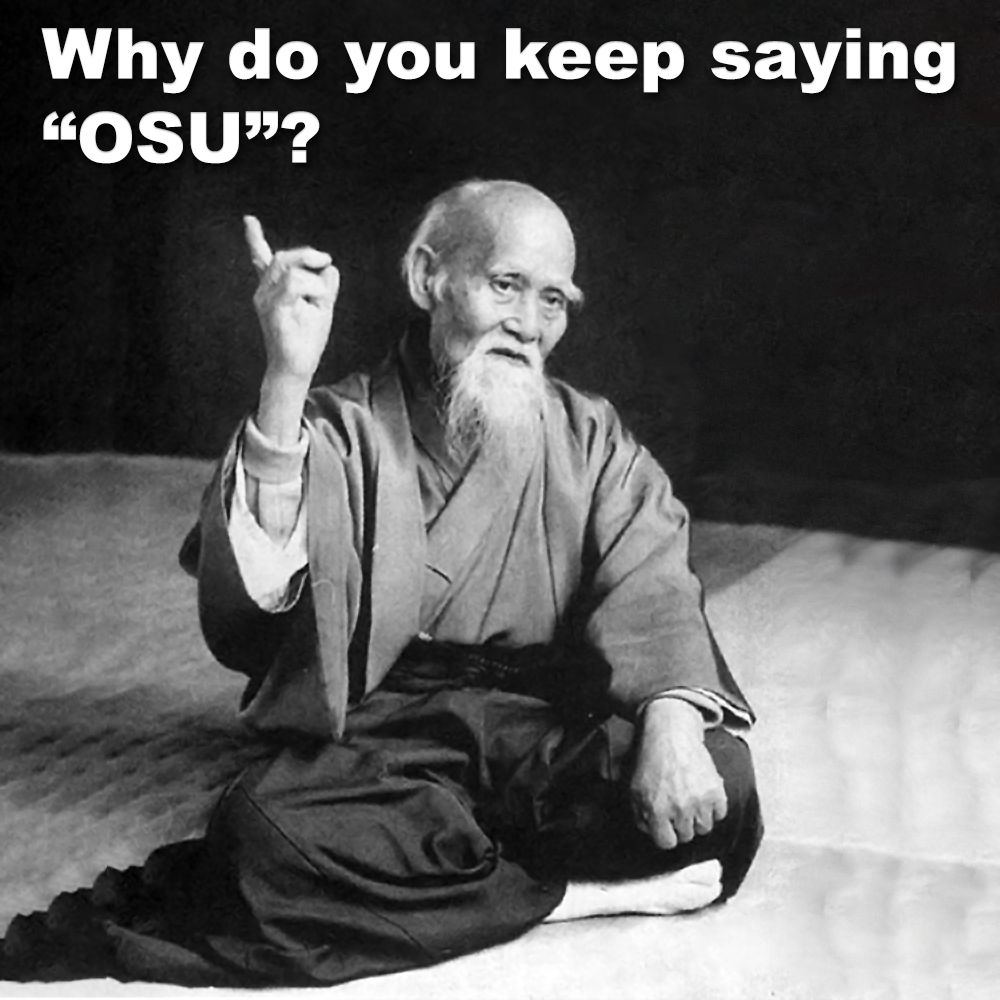
(2 minute 10 second read)
Communication can sometimes be ambiguous, especially on social media or in messages, when it involves terms or phrases that have different meanings or cultural connotations depending on the context.
.
The energetic ‘Osu’ is a familiar sound in karate circles. In many instances it’s meant to convey perseverance, respect, and a commitment to training.
.
However, with so many styles and traditions etiquette can differ. While it holds a strong place in some Japanese styles, it’s not commonly used in Okinawan traditions. As an example, here in our dojo, ‘Osu’ is not used.
.
We understand that many karate enthusiasts may be accustomed to using it as a greeting or acknowledgement, and while we appreciate the sentiment, a single ‘Osu’ in a comment reply, or especially in a private message, can lack context. It will probably leave us unsure of the intended meaning – a greeting, agreement, a question, or simply enthusiasm?
.
I often receive private messages with just ‘Osu’ in the body of the message. It can have multiple meanings depending on the situation and without additional context, it’s difficult to understand the intent behind the message.
.
If you have a question or comment about my articles, feel free to ask. It’s much easier to understand if you write what you mean, what you need to say.
.
With such a broad range of interpretations, why not express your intended message clearly so that everyone can understand?
.
As Aritomo Ito Sensei from Rockford Karate Dojo stated; “I’m a native Japanese and a Shotokan guy, but never use Osu/Oss. I was always taught to use proper words.”
.
There is obviously etiquette in the dojo, and when and how to use it – is no different. If you have to use it in your dojo, then fine, go ahead, I have no problem with this. But, in my opinion it is definitely overused, it is not a magical word that can be used for everything.
.
With any language, especially if you are not native to that language, it’s important to ask some simple questions.
.
Where does the term come from? When should you use it? Why do some people use it for everything? Do you really need to use it? And most importantly; when you should NEVER use it?
.
Everyone has their own preferences and traditions to uphold. Whether it’s what your dojo encourages, or your Sensei prefers, or what you personally feel is a genuine expression of gratitude, it is a choice whether to use it.
.
Personally, I see little harm in saying ‘Osu’, in the right context. When used appropriately, it can be a harmless expression of enthusiasm or acknowledgment. However, context is key. In settings where its meaning might not be universally understood or appreciated, such as on social media or in private messages, it’s crucial to provide additional context or explanation.
.
Without context, the intended meaning might be lost or misconstrued, potentially leading to misunderstandings or offense. Therefore, while the word itself may not be inherently harmful, it’s important to be mindful of where and how it’s used, and to ensure that sufficient context is provided so that we understand what you’re trying to say.
